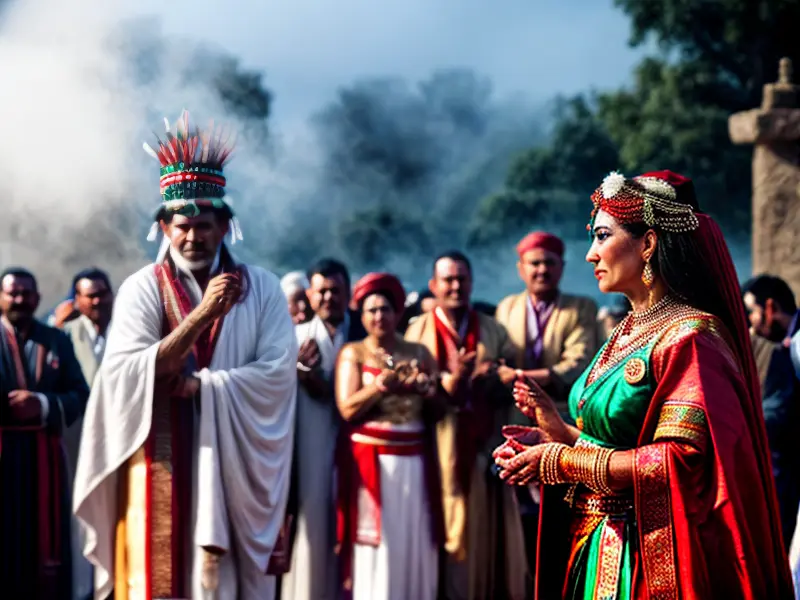The Sacrifice of Animals in Malaysian Wedding and Family Ceremonies: A Reflection of Tradition and Belief
In Malaysia, the practice of sacrificing animals during wedding and family ceremonies holds significant cultural and religious importance. This unique tradition reflects the deep-rooted beliefs and customs that have shaped Malaysia's rich heritage. Exploring the topic of animal sacrifice in Malaysian ceremonies, this article aims to shed light on the how, when, and why behind this ancient practice, while also addressing common questions and concerns.
The Significance of Animal Sacrifice in Malaysian Traditions
Animal sacrifice has been an integral part of Malaysian culture for centuries. It is rooted in the belief that offering a living creature to a higher power ensures blessings, protection, and auspiciousness for the couple or family involved in the ceremony. Traditionally, the sacrifice is seen as a symbolic act of gratitude and devotion towards the divine.
Understanding the Rituals and Practices
The practice of animal sacrifice in Malaysian ceremonies involves a series of rituals and practices. The type of animal sacrificed can vary depending on the specific ceremony and cultural practices of the region. Common animals used for sacrifice include chickens, goats, and cows.

Usually, the ceremony begins with a prayer led by a religious leader. The animal to be sacrificed is then meticulously chosen and prepared. It is important to note that the process of sacrifice is carried out in a humane manner, ensuring minimal suffering for the animal involved. The sacrifice is conducted as per religious guidelines and traditions.
The Role of Animal Sacrifice in Weddings and Family Ceremonies
In Malaysian weddings, animal sacrifice is frequently performed as part of the solemnization ceremony. The ritual symbolizes the couple's commitment to start their married life with the blessings and favor of the divine. By sacrificing an animal, they seek protection, prosperity, and a harmonious future together.

Likewise, in family ceremonies such as housewarming or the birth of a child, animal sacrifice plays a significant role in inviting positive energies and warding off evil spirits. This practice is deeply ingrained in the belief that the ritual brings about spiritual purification and ensures the well-being of the entire family.
FAQs:
Q1. How are the animals selected for sacrifice?
Animals for sacrifice are chosen based on specific guidelines provided by religious leaders and cultural traditions. Factors such as the age, health, purity, and symbolism of the animal are taken into consideration.
Q2. What happens to the sacrificed animals after the ceremony?
In most cases, the sacrificed animals are shared amongst the community or utilized for a communal meal, ensuring minimal waste and maximum utilization.
Q3. Do all Malaysians practice animal sacrifice in their ceremonies?
While animal sacrifice has deep cultural and religious roots, not all Malaysians engage in this practice. It is more prevalent among certain ethnic groups and in rural areas where traditional beliefs hold strong.
Q4. Is animal sacrifice legal in Malaysia?
Yes, animal sacrifice is legal in Malaysia. However, it must be performed in a humane and regulated manner, adhering to guidelines provided by the relevant authorities.
The sacrifice of animals in Malaysian wedding and family ceremonies represents a powerful testament to the intertwining of tradition, culture, and faith in Malaysian society. This age-old practice highlights the significance of reverence and gratitude towards a higher power while seeking blessings and protection. By understanding the cultural and religious context behind animal sacrifice, we can appreciate the depth and diversity of Malaysia's customs and beliefs.